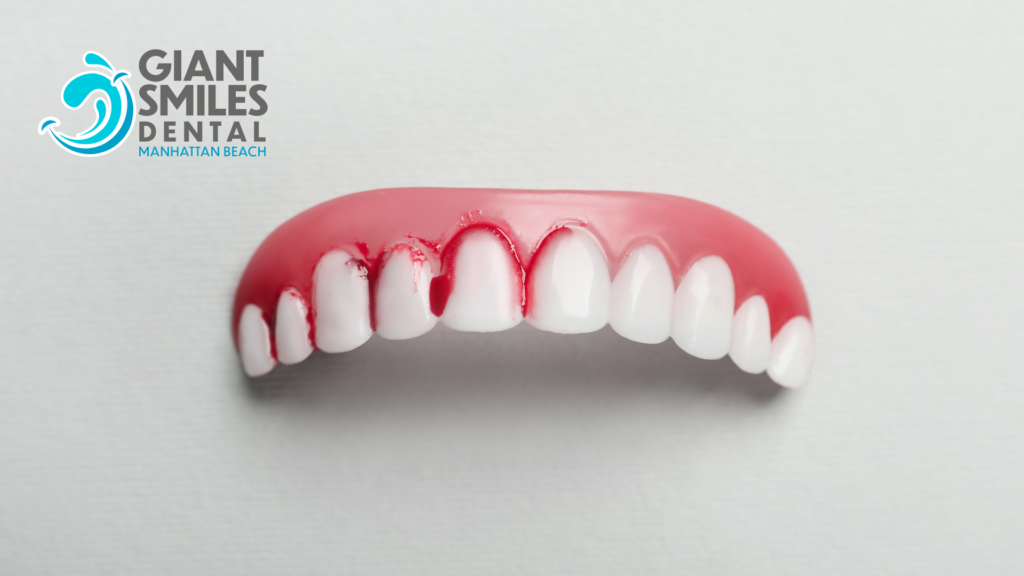Is Gum Disease Infectious?

Understanding the Risks and Prevention
The question of whether gum disease is infectious often arises, and the answer lies in the transmission of bacteria. While gum disease is not directly contagious, the bacteria responsible for its development can be infectious. Kissing, sharing utensils, or using the same oral hygiene tools can contribute to the spread of these bacteria.
Key Takeaways
- Gum disease is not directly contagious; the bacteria that cause it can be transmitted through saliva exchange.
- Close contact activities such as kissing or sharing oral hygiene tools can increase the risk of spreading bacteria that cause gum disease.
- Maintaining good oral hygiene and regular dental check-ups are essential preventive measures against gum disease.
- Genetic predisposition, lifestyle choices, and existing health conditions can influence the risk of developing gum disease.
- Understanding the connection between gum disease and overall health can help take proactive measures to prevent serious complications.
How Gum Disease Develops
The Role of Bacteria in Gum Disease
Gum disease (periodontitis) begins when plaque bacteria build up at and below the gum margin. If you do not remove the plaque daily by brushing or flossing, it hardens into tartar (also called calculus). Plaque promotes a bacterial infection of the gums, and calculus will allow more plaque to accumulate due to its roughness. Keeping the bacteria at bay or treating gum disease early may reduce the risk of spreading gingivitis or periodontal disease through saliva exchange.
Stages of Gum Disease
Gum disease starts with irritated, bleeding gums caused by a bacterial infection. At this reversible stage, it is gingivitis. Untreated, the disease can progress into an irreversible condition and possible loss of teeth. At this more severe stage, it is periodontitis. This condition is one of the most common, and we find that patients either ignore it or their doctor needs to explain it fully.
- Gingivitis: Early stage with red or bleeding gums.
- Mild Periodontitis: Infection spreads, causing pockets around teeth.
- Moderate Periodontitis: Bacteria erode ligaments, soft tissues, and bone.
Gingivitis that goes untreated typically evolves into periodontal disease, which not only infects the gums but also starts to break down the connective tissues and bone.
Common Symptoms to Watch For
- Red or swollen gums
- Bleeding while brushing or flossing
- Persistent bad breath
- Pus around the gum line
- Loose or shifting teeth
If you notice any of these symptoms, it is crucial to consult with a dental professional like those at Giant Smiles Dental for early diagnosis and treatment.
Modes of Bacterial Transmission
Saliva Exchange and Its Risks
Bacteria responsible for gum disease can be exchanged through saliva, especially during close contact, such as kissing or sharing eating utensils. Intimate actions can increase the risk of bacterial transmission, and in family settings, there’s an increased likelihood of spreading such bacteria among family members.
Maintaining good oral hygiene is important to minimize the risk of bacterial transmission through saliva.
Sharing Oral Hygiene Tools
Sharing eating utensils, toothbrushes, or anything else in someone else’s mouth can expose you to their saliva. If they have an excess of bacteria in their mouth, as with gingivitis or gum disease, you may be more likely to be exposed to that bacteria.
- Avoid sharing toothbrushes and eating utensils.
- Ensure personal oral hygiene tools are kept separate.
Risk Factors for Gum Disease
Genetic Predisposition
Genetics can play a significant role in your susceptibility to gum disease. You may be at a higher risk if your parents, grandparents, or siblings have experienced gum disease. Understanding your family history can help you proactively maintain your oral health.
Lifestyle and Dietary Habits
Your lifestyle choices and diet can greatly impact your oral health. Key factors include:
- Smoking or other tobacco use
- Poor oral hygiene
- High sugar intake
- Stress
Smoking, for example, weakens your immune system, making it harder for your body to fight off the bacteria in your mouth. This leads to a higher risk of infection and inflammation, which can cause your gums to suffer. If you smoke, consider quitting to improve your oral health and protect your gums.
Impact of Existing Health Conditions
Certain health conditions can increase your risk of developing gum disease. These include:
- Diabetes
- Autoimmune diseases (e.g., lupus, scleroderma, Crohn’s disease)
- Hormonal changes (e.g., puberty, pregnancy, menopause)
High blood sugar levels can damage your blood vessels, making it difficult for your body to deliver essential nutrients to your gums and teeth. Keep your blood sugar levels under control to maintain a healthy mouth.
Recognizing these common causes empowers individuals to prioritize good oral care habits and regular dental check-ups, which play a crucial role in maintaining healthy gums and preventing the progression of periodontal disease. For personalized advice and treatment, consider consulting with Giant Smiles Dental.
Preventive Measures Against Gum Disease
Maintaining Good Oral Hygiene
Maintaining good oral hygiene is the cornerstone of preventing gum disease. Brush your teeth twice daily and floss daily to remove plaque and food particles that can lead to gum disease. Replace your toothbrush every three to four months or when the bristles wear out. Avoid sharing toothbrushes, floss, or other dental tools with others to prevent the spread of bacteria.
Regular Dental Check-ups
Regular dental check-ups are essential for early detection and treatment of gum disease. Schedule a visit to Giant Smiles Dental in Manhattan Beach for professional cleanings and to diagnose any early signs of gingivitis or other issues. Aim to visit your dentist at least once or twice a year.
Early detection and treatment of periodontal disease and meticulous oral hygiene can help you preserve your teeth and smile for life.
Avoiding the Sharing of Utensils and Tools
To prevent the spread of bacteria that cause gum disease, avoid sharing utensils, toothbrushes, and other oral hygiene tools. Be cautious about activities that involve close contact with saliva, especially if you or someone you know is experiencing gum disease symptoms.
Following these preventive measures can significantly reduce your risk of developing gum disease and maintain a healthy smile. For comprehensive preventative and restorative dental care, visit Giant Smiles Dental in Manhattan Beach.
Treatment Options for Gum Disease
Non-Surgical Treatments
Non-surgical treatments are often the first line of defense, especially in the early stages of gum disease. These procedures help eliminate infection and inflammation, promoting the healing of gum tissues. Scaling and root planing is a common non-surgical treatment in which tartar and plaque are removed from teeth, and the root surfaces are smoothed. This helps prevent further buildup and allows your gums to reattach to your teeth.
Surgical Interventions
When gum disease is more serious, your dentist may refer you to a gum specialist called a periodontist. Advanced gum disease can be treated by deep cleaning, medications, and surgery to eliminate or reduce deep pockets and/or regenerate lost soft and bone tissue with grafts. One common surgical procedure is gum grafting, where tissue is added to areas of gum recession. This tissue may come from the roof of your mouth or a licensed bone and tissue bank.
Home Care and Maintenance
Adequate home care and maintenance are crucial for managing gum disease. This includes:
- Brushing and flossing daily to remove plaque.
- Using an antimicrobial mouthwash to reduce bacteria.
- Regular dental check-ups and cleanings at Giant Smiles Dental.
Consistent home care and professional treatments are key to preventing the progression of gum disease and maintaining optimal oral health.
Impact of Gum Disease on Overall Health
Connection Between Gum Disease and Heart Health
Gum disease isn’t just confined to your mouth; it can have broader implications for your overall health. Scientific studies indicate a potential connection between untreated gum disease and systemic health issues. The inflammation triggered by gum disease may contribute to problems beyond oral health, such as cardiovascular issues. When bacteria from the infected gums enter your bloodstream, they can create inflammation in your blood vessels, which may contribute to the development of heart disease.
Gum Disease and Diabetes
Research has also proven that gum disease directly impacts your overall health and well-being. There’s a link between gum disease and other health issues like diabetes. The inflammation caused by gum disease can make it more difficult to control blood sugar levels, exacerbating diabetes symptoms.
While gum disease may not directly spread, its effects on the body underscore the importance of addressing oral health to safeguard your overall well-being.
Other Health Complications
Numerous studies have demonstrated a possible connection between gum disease and other health conditions. Those conditions include:
- Rheumatoid arthritis
- Stroke
- Alzheimer’s disease
- Respiratory complications
Good oral hygiene prevents and also protects other body parts from illness. Giant Smiles Dental emphasizes the importance of maintaining oral health to avoid these systemic issues.
Frequently Asked Questions
Is gum disease contagious?
While gum disease is not directly contagious, the bacteria responsible for its development can be shared. Kissing, sharing utensils, or using the same oral hygiene tools can contribute to the spread of these bacteria.
Can children get gum disease from their parents?
Researchers are still studying the extent to which periodontitis is contagious. However, children whose parents have advanced gum disease are at greater risk for developing it.
How can I prevent the spread of bacteria causing gum disease?
To prevent the spread of bacteria that cause gum disease, avoid sharing oral hygiene tools and utensils and engage in good oral hygiene practices such as regular brushing and flossing.
What are the risk factors for developing gum disease?
Risk factors for gum disease include genetic predisposition, lifestyle and dietary habits, and existing health conditions such as diabetes.
What are the common symptoms of gum disease?
Common symptoms of gum disease include red, swollen, or bleeding gums, persistent bad breath, and loose teeth.
How is gum disease treated?
Treatment options for gum disease include non-surgical treatments like scaling and root planing, surgical interventions, and home care and maintenance to manage the condition.






